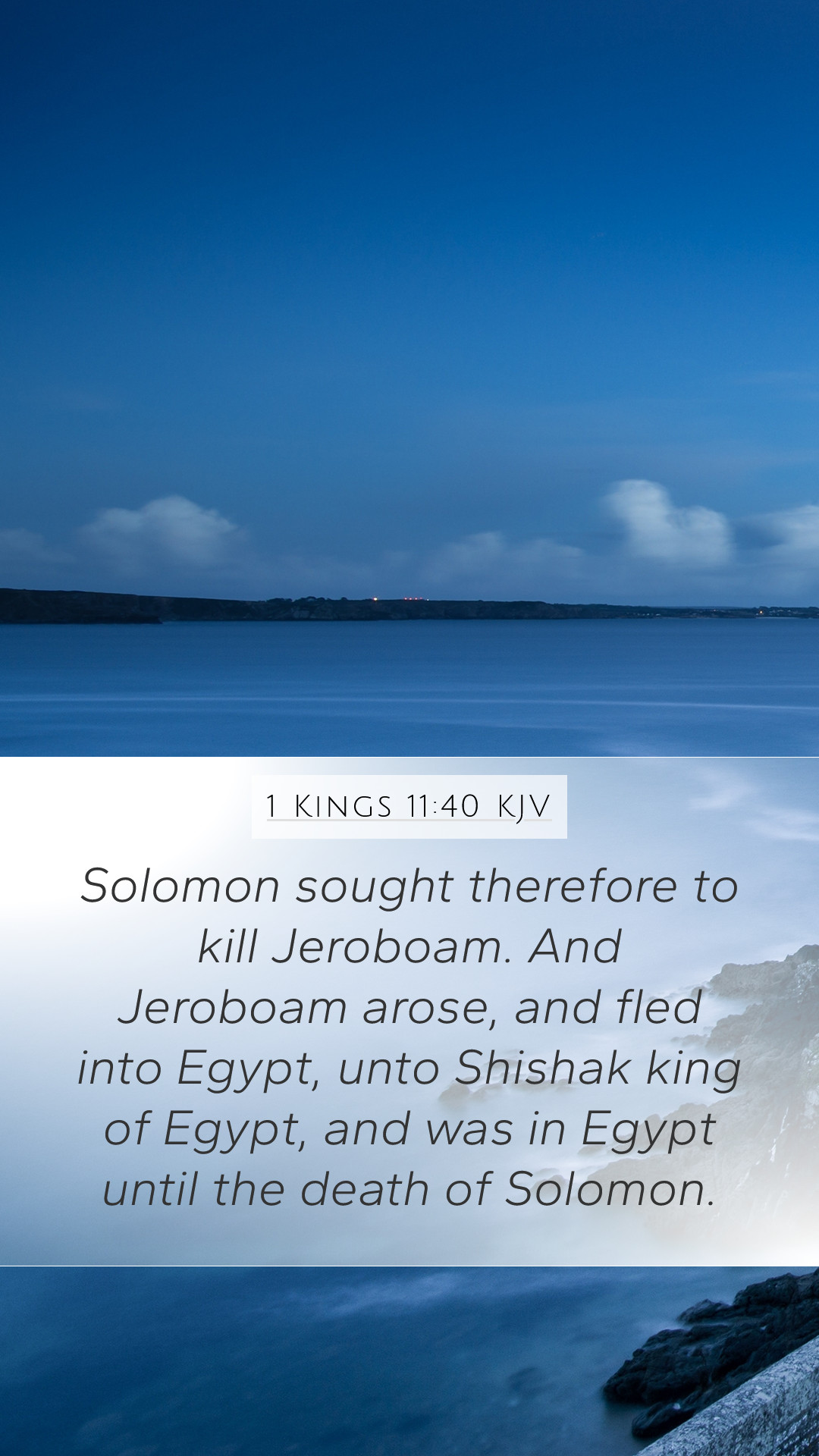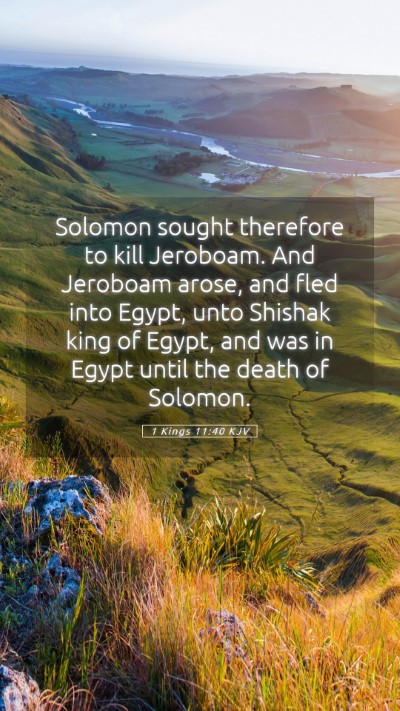Understanding 1 Kings 11:40
1 Kings 11:40 states:
"And Solomon sought therefore to kill Jeroboam. But Jeroboam arose, and fled into Egypt, unto Shishak." (1 Kings 11:40, KJV)
This verse marks a significant moment in the history of Israel, as it illustrates the tension between King Solomon and Jeroboam, who would later become a prominent figure in the northern kingdom of Israel.
Meaning of the Verse
The meaning of this verse can be approached through several key insights derived from public domain commentaries.
-
King Solomon's Response:
Matthew Henry highlights that Solomon's desire to kill Jeroboam exemplifies a reaction of fear and insecurity. Solomon perceived Jeroboam as a threat to his reign due to God's prophecy about the division of the kingdom.
-
Jeroboam’s Flight:
Albert Barnes emphasizes Jeroboam's flight to Egypt, which symbolizes a turning point. By fleeing, he sought safety and refuge, distancing himself from the threat posed by Solomon. His move to Egypt can also be seen as stepping out of the land promised to Israel.
-
Historical Context:
Adam Clarke elaborates on the historical context, noting that this event occurred during a time of discontent and division within Israel. Each character represents larger political themes, with Jeroboam symbolizing emerging opposition against the established monarchy.
-
Divine Prophecy:
All three commentators suggest that this incident was not merely political; it was part of God's divine plan. The division of the kingdom was foretold by Ahijah the Shilonite earlier in the chapter (1 Kings 11:29-39), demonstrating that human actions were influenced by God's ultimate will.
Bible Verse Interpretations
This verse serves as a critical juncture for understanding the unfolding of biblical narratives regarding leadership and divine intervention. The fear exhibited by Solomon foreshadows the eventual strife that will envelop the kingdom due to his choices and alliances.
Insights for Bible Study Groups
For those involved in Bible study groups, 1 Kings 11:40 can lead to discussions about:
- Leadership dynamics within biblical narratives.
- The themes of fear, insecurity, and their impact on decision-making.
- How God's prophecies play out in historical contexts.
Application of the Verse
In terms of application for daily life, this scripture encourages believers to reflect on how fear can drive actions that lead to division and conflict. Understanding the roots of this fear can lead to personal and communal restoration.
Scripture Analysis
This verse invites Biblical exegesis by prompting questions like:
- What led to Solomon's drastic response to Jeroboam?
- What can we learn about the consequences of power struggles from this narrative?
- In what ways does this historical event reflect similar patterns in our own lives?
Related Bible Cross References
- 1 Kings 11:30-39: The prophecy about Jeroboam's future kingship.
- 1 Kings 12: The account of the division of the kingdom.
- 2 Chronicles 10: A further exploration of Jeroboam's role and the resulting division.
Conclusion
1 Kings 11:40 serves as an essential verse for understanding the complexities of power, fear, and divine prophecy in biblical history. It opens a window for deep study into leadership themes and the often tumultuous relationship between divine intention and human action.
As you explore this verse, consider using Bible study tools and resources to deepen your understanding of its significance and application in your life.


